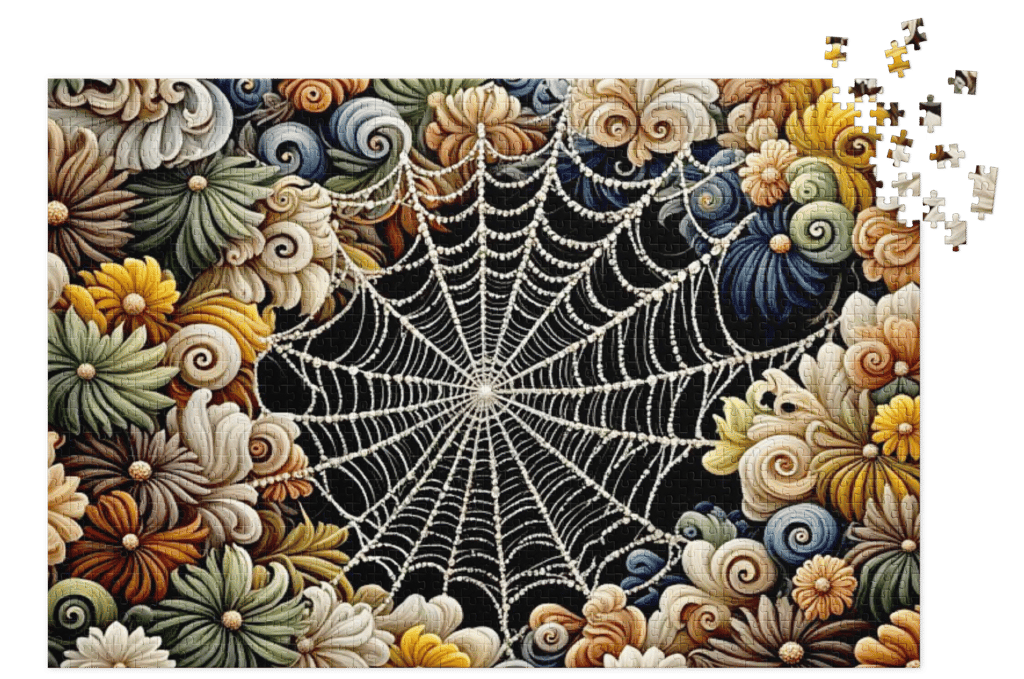Puzzles, Focus and the Art of Attention
Attention span shorter than a goldfish? Jigsaws might save you. Discover how puzzling sharpens focus, builds mental stamina, and lures your brain into the blissful state of flow.
Our modern attention span is a tragedy. Notifications chirp, screens glow, and our poor brains are tugged from task to task like toddlers in a sweet shop. Yet sit down with a jigsaw puzzle and something miraculous happens. Hours pass, phones remain unchecked, tea goes cold, and suddenly you are in a state of near-monastic concentration. It feels magical, but psychology and neuroscience can explain exactly why puzzles are a tonic for the scattered mind.
Training the Spotlight of Attention
Cognitive psychologists liken attention to a spotlight. It can shine broadly across the room or focus tightly on a single object. Jigsaw puzzles force that spotlight to narrow. Each piece demands scrutiny, each pattern requires discrimination. By repeatedly sustaining this focus, the brain strengthens attentional control networks, particularly in the frontal and parietal lobes (Posner & Petersen, 1990, Annual Review of Neuroscience). Over time, these networks adapt, making it easier to resist distraction outside the puzzle table too.
Entering Flow
The sweet spot of attention is known as flow. When skill matches challenge, the brain releases dopamine and norepinephrine, chemicals that heighten focus, motivation, and pleasure. Flow is associated with reduced default mode network activity, the neural chatter linked to mind-wandering and rumination (Christoff et al., 2009, Proceedings of the National Academy of Sciences). In flow, the world falls away, and only the puzzle remains. Far cheaper than therapy, with the added satisfaction of a finished picture.
Mental Stamina and Cognitive Endurance
Attention is like a muscle. It fatigues with use but also strengthens with training. Working steadily on a puzzle for hours is akin to mental weightlifting, gradually building endurance. Research into sustained attention tasks shows that regular practice can enhance vigilance and delay attentional lapses (Mackworth, 1948, Quarterly Journal of Experimental Psychology). Translation: puzzles may not only help you concentrate now but also improve your long-term capacity to stay focused on complex tasks.
Stress and the Focused Mind
Attention and stress have a complicated relationship. Chronic stress scatters attention, but focused activity reduces stress. By engaging deeply in a puzzle, you switch the nervous system from fight-or-flight into rest-and-digest. This bidirectional link explains why so many puzzlers report feeling calmer and more centred after a session. It is not just perception. It is biology.
Everyday Benefits of Puzzle-Trained Focus
The dividends of puzzle-strengthened attention show up in surprising places. Reading becomes easier without drifting off mid-paragraph. Work tasks feel less like Herculean labours. Even conversations improve when your spotlight of attention is better trained. Puzzles are not just a hobby. They are stealth tutors in the art of presence.
In Conclusion
In a world that constantly chips away at our focus, jigsaw puzzles offer a sanctuary of attention. They train the spotlight, foster flow, build endurance, and calm the nervous system. So next time your mind flits like a distracted magpie, pour yourself a tea, tip out a puzzle, and give your attention the gym session it deserves.








